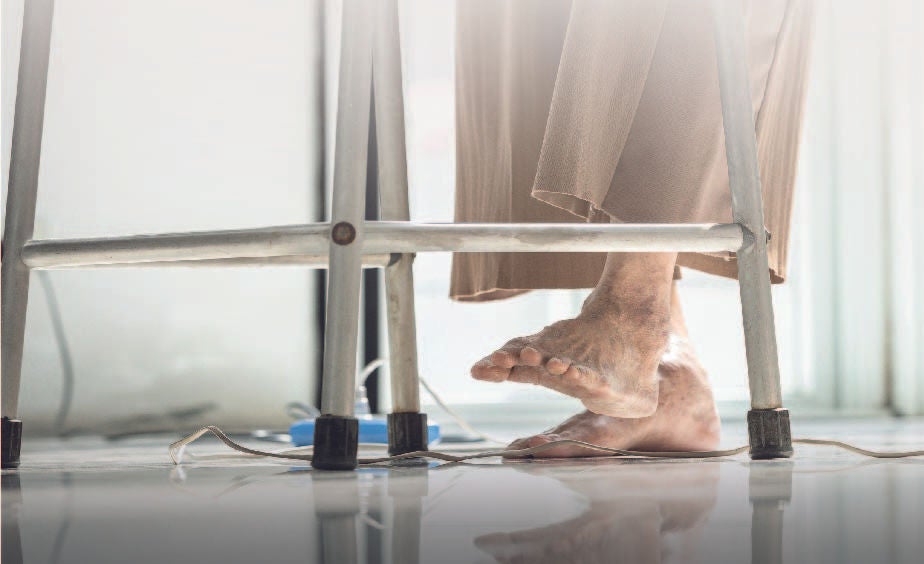National Neuroscience Institute will NEVER ask you to transfer money over a call. If in doubt, call the 24/7 ScamShield helpline at 1799, or visit the ScamShield website at www.scamshield.gov.sg.
Watch your step!

One in three people over 65 years has at least one fall a year, and the risk is even higher for people living with brain or nerve conditions. Lim Si Qi, Senior Physiotherapist, Singapore General Hospital explains why and what you can do to lower your risk.
Brain and nerve conditions can occur at any age, from young adults to the very elderly. Most are at risk of falls because of symptoms caused by their conditions and treatment.
These include poor balance, difficulties walking, muscle weakness, poor vision, confusion and side-effects of medication such as dizziness and drowsiness, making it easier to slip or stumble and harder to steady yourself to prevent a fall.
The majority of falls happen at home, and the consequences can be devastating.
“Falls can cause serious injuries such as bone fractures and bleeding in the brain, plus they affect mental well-being. The loss of independence caused by such injuries often causes frustration, and the fear of falling can prevent people from leaving their homes, resulting in social isolation and reduced quality of life,” said Si Qi.
6 tips for a safer home
A few small actions can reduce your risk of falls.
1. Keep walkways clear
A cluttered walkway is a fall hazard. To keep walkways clear:
- Place shoes on racks and hang or store bags on shelves.
- Allocate a designated space within the home for young children to play with toys and remind them to put their toys away after playing.
- Secure loose electrical cables and keep them taped down or away from walkways.
- Allow wide enough walking space between furniture and relocate furniture placed in the walkway.
2. Use non-slip mats
Unsecured floor mats are a common cause of slips and trips. Ensure floor mats have non-slipping backing that resists movement when stepped on.
3. Install grab bars and ramps
Home modifications can reduce the risk of falls in hazardous areas such as bathrooms. Grab bars, ramps (when needed), and slip-resistant treatment to bathroom floor tiles can reduce fall risk, and they can be installed at a subsidised rate through the Housing Development Board’s (HDB) Enhancement for Active Seniors (EASE) programme. Click here for more information about EASE, including cost and eligibility.
4. Clean up spills
It is hard to stay upright on slippery surfaces! Clean up spills as soon as they happen and ask someone for help if you are unable to clean up promptly.
5. Light up the way
Fall risk increases in places where lighting is poor. To make it easier to see where you are going:
- Turn on a bedside light before getting out of bed.
- Install night lights between the bedroom and bathroom or motion-sensor lighting that turns on and off automatically when entering or exiting the room.
6. Look after your eyes
Vision assessment can help prevent falls and also improve your quality of life!
Protect your sight by going for an eye check-up every year or earlier if you notice your vision is getting worse. Many conditions can be treated or halted if picked up in the early stages. Remember to take your spectacles (if any) with you to check if the lens prescription is still correct.
This article was published in the National Neuroscience Institute's NeusLink magazine, which covers articles about NNI updates and brain, spine, muscle and nerve conditions in English and Chinese - to read more articles, click here!
Check out another related article:
© 2025 SingHealth Group. All Rights Reserved.
















